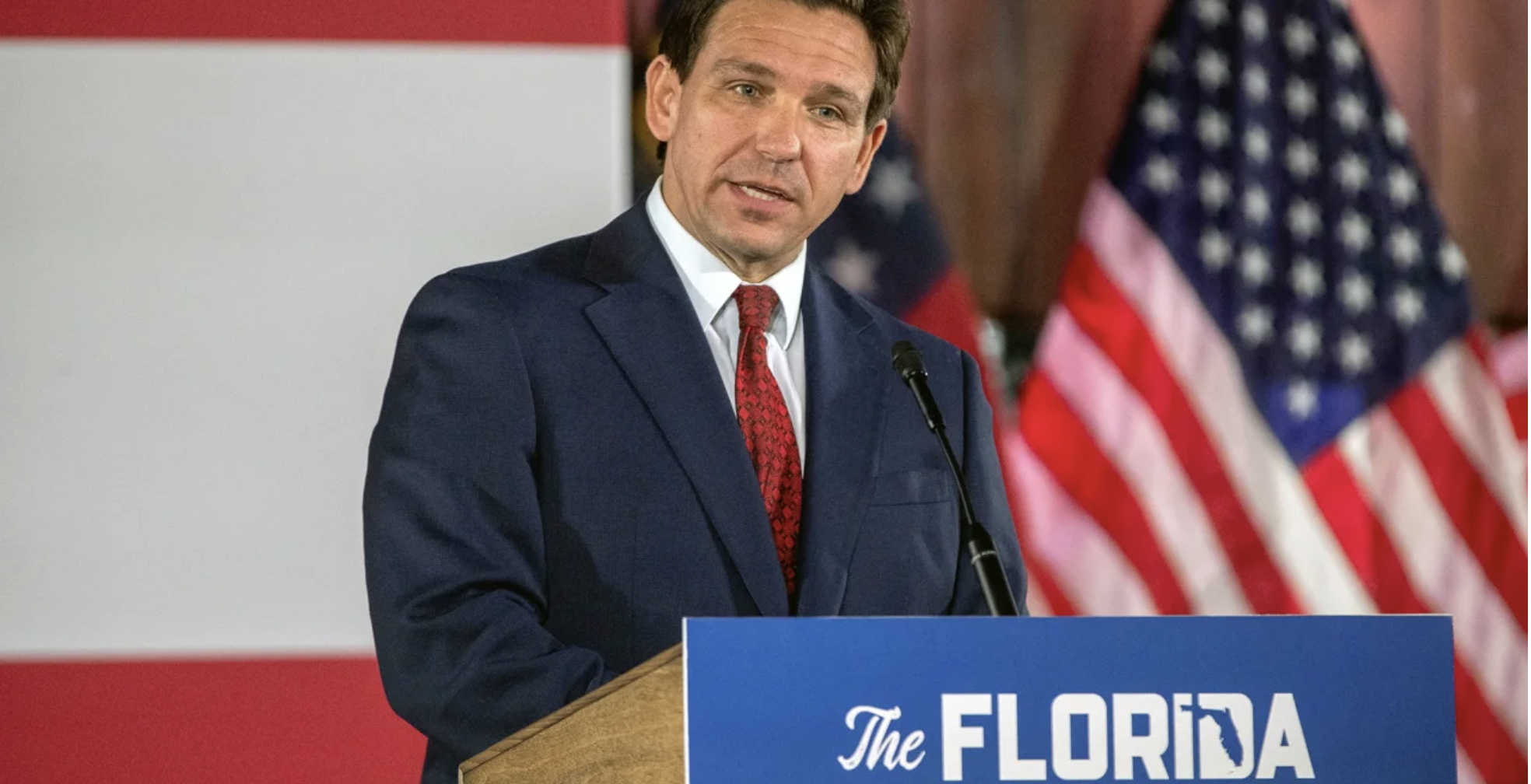While Ron DeSantis runs for President, he has attempted to excite conservatives nationwide by pushing legislation that makes it more difficult for undocumented students to study in Florida public schools. He also has pushed legislation that limits teaching about diversity and sexual orientation. DeSantis has even supported efforts to ban books.
However, in local school boards and courtrooms across Florida, teachers’ unions have fought back and rolled back some of DeSantis; proposals. Now, DeSantis has turned his attention to taking on teachers’ unions.
Last month, DeSantis passed a provision that stripped public employees’ unions in the state of the ability to collect dues automatically from union members’ paychecks. (Police and firefighters unions, backers of DeSantis, were exempted from the provisions)
“I think he’s made it clear, he does not like this, he sees us as people who are getting in his way of doing what he wants us to do,” says Florida Education Association President Andrew Spar. “He sees this as an adversary that he needs to defeat to run for President of the United States.”
DeSantis and his anti-union allies thought their legislation had dealt a death blow to Florida public unions. Many unions were worried that they would lose tens of thousands of members as they struggled to get members to give their bank account information so that unions could manually deduct dues.
However, Florida Education Association President Andrew Spar says the attacks have backfired.
The Florida Education Association says that it actually gained 5,000 members in the month since DeSantis signed the bill in May. Indeed, many non-union teachers, particularly younger teachers, startled by DeSantis’s attacks on gays, immigrants, and minorities, have sought to join the union to fight back against the governor’s attacks.
“We have people coming in who are saying, ‘Hey, how do I join the union? I want to join the union,'” says Andrew Spar, President of Florida Education. “Teachers are saying ‘I can’t believe what’s happening in the state of Florida; we need to have a voice. How can I get involved in the union?'”
At Orange River Elementary School in Fort Myers on Florida’s Gulf Coast, 37-year-old 4th-grade teacher LaTonya Starks says that switching everyone over from automatic union dues paycheck deductions to recurring credit card charges initially seemed daunting for the union. However, teachers like Starks kicked into overdrive, talking to nearly every teacher in their building about the importance of the union.
Surprisingly, they found that teachers, particularly younger teachers, who had never been involved in the union were starting to sign up to become members.
“I’ve managed to get a couple of new teachers, actually, because of all this discussion and having these discussions about just giving them the facts, like ‘let’s take a look at all the things that are being done, and who they’re being done to in the school system,'” says LaTonya Starks. “And then you say [to them] ‘don’t you wonder why someone’s working so hard to make it difficult for us to be a professional organization?'”
Starks says that some new union members even apologized for not going through all the paperwork of signing to be part of the union in the “right-to-work” state, where being part of the union is voluntary.
“It’s a pretty streamlined process, and once I get them signed up, that’s where most of them say, ‘Oh, well, that’s it, Okay, I’m sorry. I’m sorry it took me so long’,” says Starks, recounting the countless conversations
Despite the influx of new members rallying to the union, Starks worries that many teachers may feel overwhelmed by DeSantis’s various attacks on their schools and communities.
“I’m also terrified for my students right now with all of the laws involving migrants and immigration,” says Starks. “Most of my students are from Guatemala and or Honduras. And I have very few students who are originally from the United States. And so I’ve had families that may not be able to be here next year and who are freaking out and feeling very uncomfortable and feeling afraid in their own homes.”
The teachers union leader says that she often has worked nearly 12-14 hours a day.
“At school, I’m trying to take care of their needs and looking out for my students throughout the day,” says Starks. “But then after school, it goes into kind of this ‘beast mode’ of I’ve got to get everybody who I can switchover [tonight], I’ve got to notify people how important this is.'”
With many teachers being stretched thin with overtime, she says sometimes it can take more than one gentle reminder to get someone to sign their union card.
“Sometimes people do get wrapped up in other things, you know, like their job and their families. And I completely understand that. And so you do have to do the business about letting everybody know what’s at stake. And that part is hard,” says the 4th-grade teacher. “Because it feels like you’re putting pressure on other people. And they’re already stressed.”
The 37-year-old 4th-grade teacher and parent is exhausted but, like many Florida teachers, is vowing to fight on.
“It’s wild, I don’t know how I’m managing the stress,” says LaTonya Starks. “We all are beginning together. Andwhat I hope more than anything is that at the end of this, we’re gonna have even more teachers than we had before. And I really hope we’re able to do the same for support staff. But it is a challenge. It is a Herculean effort – I kid you not.”

